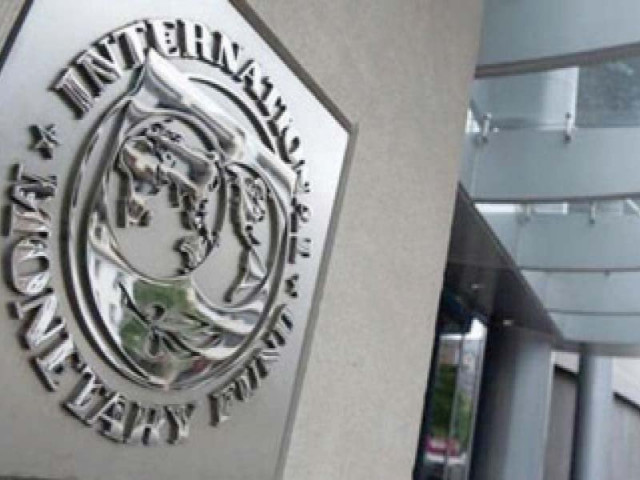Govt ready to make tough decisions
Finance minister gives assurances in virtual meeting with IMF mission chief

Pakistan on Wednesday reassured the International Monetary Fund (IMF) that it was ready to take the much-needed tough economic measures, including increase in electricity and petroleum product prices, as both sides were locked in parleys to save the economy from default.
The fresh commitment – the second in the past four weeks – was given by Finance Minister Miftah Ismail during a virtual meeting with IMF Mission Chief Nathan Porter.
“The government understands the current economic woes and agreed that it will have to make tough decisions while mitigating the effects of inflation on the middle to low-income groups,” an official statement of the finance ministry quoted Ismail as saying.
During his April meetings with the top IMF leadership, the finance minister assured the deputy managing director of the global lender that his government would immediately withdraw the full subsidy on petrol and half subsidy on high-speed diesel (HSD), which at that time had been estimated at Rs20 per litre and Rs46 per litre respectively.
However, the subsidy has now more than doubled and finance ministry sources said the government would withdraw a major part of it before Miftah leaves to attend Doha meetings by Monday.
“We can’t face the IMF until the needed steps are taken,” a senior government official told The Express Tribune on the condition of anonymity.
Sources said Ismail told the IMF that his government would stay in power by August next year – the time when the National Assembly would complete its term, and now all the needed decisions would be made.
The finance minister also told the IMF mission chief that the additional Rs5-per-unit subsidy on electricity would be withdrawn, the sources added.
So far, Prime Minister Shehbaz Sharif has been ignoring the advice of his finance minister to restore economic discipline and reverse the ill-designed decisions of the previous PTI government.
Just weeks before his ouster from power, former premier Imran Khan announced the freezing of fuel prices at the February 15 level till the end of June.
The decisions made by Imran and Shehbaz have so far cost the national kitty Rs157 billion and derailed Pakistan’s relations with the IMF.
The country is left with only $10.3 billion in gross official foreign exchange reserves, which are hardly sufficient to keep the economy afloat for another six weeks.
Pakistan’s talks with the IMF would continue till May 25 in Doha with the aim to revive the bailout package and secure the next loan tranche of $1 billion.
The talks are also aimed at seeking an extension in the IMF programme period till June next year. The finance minister recently said the government was also keen to increase the loan size to $8 billion – up by $2 billion.
The first batch of senior management of the Finance Division, State Bank of Pakistan and Federal Board of Revenue has already reached Doha for the seventh review of economy.
Sources said there was a possibility that the interest rate would also go up to contain inflation, which will be fuelled by the increase in petrol, diesel and electricity prices.
However, State Bank of Pakistan’s acting Governor Dr Murtaza Syed is facing pressure from the political leadership to avoid any increase in the rate.
Syed is said to have told the political leadership that it was the right of the Monetary Policy Committee (MPC) to make any such decision and the body would decide based on the empirical numbers.
The MPC is meeting next week to review the monetary policy. In its last meeting, the MPC increased the interest rate to 12.25%.
The finance minister and the minister of state will be joining the team in Doha early next week to conclude discussions with the expectation of clinching an agreement for IMF’s continued support until the successful completion of the programme, said the finance ministry.
The ministry added that Miftah “reaffirmed the government’s commitment to undertaking the reforms envisaged under the (IMF) programme and to complete the structural benchmarks”.
“IMF Mission Chief Nathan Porter shared with the finance minister the global lender’s assessment of the challenges facing the economy. He sensitised that Pakistan’s economy demanded both immediate and long-term measures,” said the finance ministry’s statement.
The finance minister emphasised that a few factors, which had adversely affected the economic situation, were beyond the control of the government.
They included exogenous factors like supply shocks, commodity super-cycle and Russia-Ukraine conflict due to which commodity prices had soared further.
These factors were putting pressure on the current account as well as the foreign exchange reserves, according to the minister.
The rupee further lost its value and traded at Rs198.4 in the inter-bank market. It crossed Rs200 mark in the open market – for the first time in the history of the country. This will significantly fuel inflation.
Miftah said the government would take measures to reduce the burden on the economy while protecting the vulnerable sections of the population. “We should aim to address structural issues so that Pakistan is able to end its fiscal deficit and move towards sustainable growth,” he added.
Published in The Express Tribune, May 19th, 2022.
Like Business on Facebook, follow @TribuneBiz on Twitter to stay informed and join in the conversation.



















COMMENTS
Comments are moderated and generally will be posted if they are on-topic and not abusive.
For more information, please see our Comments FAQ